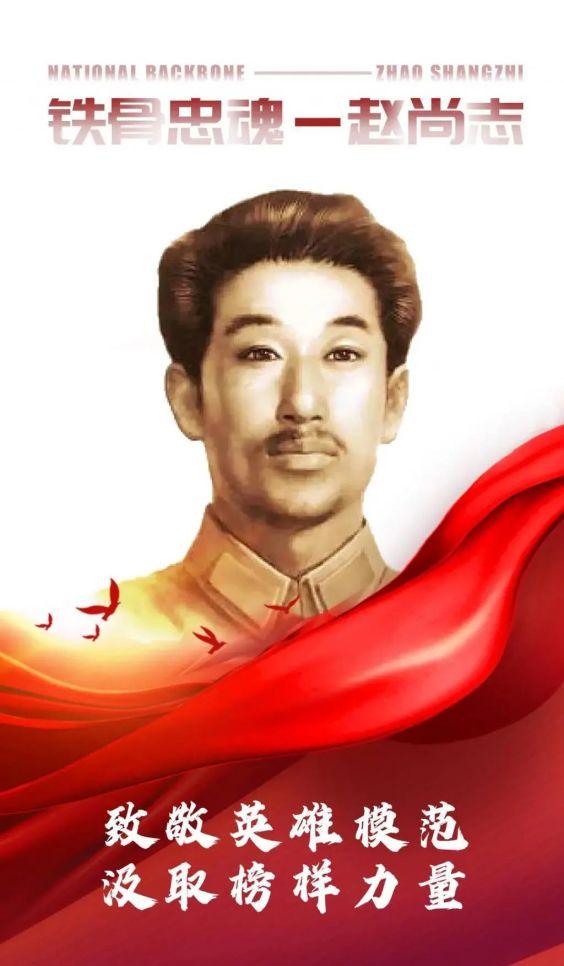In 2009, the relevant departments of the central government launched the selection of "100 Heroes and Model Figures Who Made Outstanding Contributions to the Founding of New China", and a total of 7 people from Heilongjiang Province were selected. They are Yang Jingyu, Zhao Shangzhi, Li Zhaolin, Zhao Yiman, Zhu Rui, Yang Zirong, and eight daughters to the river. Each shining name, although the ages are different, the deeds are different, but they also have firm ideals and beliefs and lofty life realm. They are the backbone of the nation, the vanguard of the times, the pride of the motherland, the most vivid and direct teaching material for patriotic education, and the spiritual force that inspires all the people to unite and struggle.
The Provincial Department of Culture and Tourism specially launched the "Tribute to Heroic Models and Drawing on the Power of Example" series of photo online exhibitions, inviting everyone to walk into that magnificent history, pursue red memories, and inherit red genes.

This issue of Zhao Shangzhi's series of photo exhibitions uses pictures to reproduce the iron-boned loyal soul of national hero Zhao Shangzhi who dedicated his life to the cause of resistance against Japan.
Zhao Shangzhi (1908 - 1942), a native of Chaoyang, Liaoning. In 1925, he was admitted to the Xugong Memorial Industrial School in Harbin and joined the Communist Party of China during his studies. In the winter of the same year, he entered the Whampoa Military Academy in Guangzhou. In 1926, he returned to the northeast to engage in underground struggles. In 1932, he was sent by the party organization to the Bayan guerrillas as chief of staff. In the spring of 1933, he joined the Anti-Japanese Volunteer Army's Sun Chaoyang Department as a groom, and later served as chief of staff. In October of the same year, he founded the Zhuhe Anti-Japanese Guerrilla Group and served as its leader. After 1934, he successively served as the commander of the Hadong Detachment, the commander of the Third Army of the Northeast People's Revolutionary Army, the commander of the Third Army of the Northeast Anti-Japanese Coalition Army, the commander-in-chief of the North Manchurian Anti-Japanese Coalition Army, and the deputy commander-in-chief of the Second Route Army of the Northeast Anti-Japanese Coalition Army. He was wrongly expelled from the party twice, but remained loyal to the party. On February 12, 1942, when he led a small force to attack the wutonghe pseudo-police station in Heli County, he was wounded and captured. He was 34 years old. In 1982, the Heilongjiang Provincial Committee of the Communist Party of China restored Zhao Shangzhi's party membership on the proposal of the Central Organization Department.
▲ Sculpture: National Hero Zhao Shangzhi (Author: Lü Bin)
▲ Relief: Following (Author: He Zhongling)
▲Zhao Shangzhi's hometown of Lamagou in Liaoyang County, Liaoning Province (now Shangzhi Township)
▲ Zhao Shangzhi's former residence in Harbin, No. 26 Jiliang Street, Waiwai
▲The former site of Xugong Middle School where Zhao Shangzhi studied
▲ The former site of the Whampoa Military Academy, where Zhao Shangzhi studied in 1926.
▲ The Eastern Railway Supervision Office's instructions on "infiltrating" the Communist Party by Zhao Shangzhi, a student who left the school at Rao Cha Xu Gong Middle School
▲ Shengjing Times report on Zhao Shangzhi (Zhao Zihe) carrying out revolutionary propaganda in prison
▲ On April 14, 1932, the Shengjing Times reported the news that Japanese military trains had been subverted
▲ The former site of the "Dime Hotel" (now Xisidao Street, Daoli District, Harbin), where Zhao Shangzhi once went to look for a party organization.
▲ The three streams of Shangzhi City, the site where the Zhuhe anti-Japanese guerrillas were founded
▲ Zhao Shangzhi signed the notice of the General Headquarters of the Northeast Anti-Japanese Coalition Army and the Headquarters of the Hadong Detachment of the Northeast Anti-Japanese Guerrilla Force
▲The Third Army of the Northeast People's Revolutionary Army was reorganized into the Third Army of the Northeast Anti-Japanese Coalition Army
▲Declaration on the second anniversary of the founding of the Third Army of the Northeast Anti-Japanese Coalition Army
▲ The "National Salvation Times" reported on the Third Army of the Northeast Anti-Japanese Coalition Army led by Zhao Shangzhi
▲Japanese and pseudo-sources record the destruction of Machida Shosa by The Shōsa clan
▲ Japanese and pseudo-newspaper reports on the frequent activities of Zhao Shangzhi's department
▲ Oil painting: Ice Fighter (Author: Zhu Lynn)
▲ Letter from Zhao Shangzhi to the Northern Manchuria Provincial Party Committee in March 1940
▲ Letter from Zhao Shangzhi to Marshal Bryukhel of the Red Army of the Soviet Union in November 1937 and the Party Committee of the United Communist Party (Brazzaville) Army. (Copy)
▲The stone stele where Zhao Shangzhi was killed
▲ Zhao Shangzhi Martyr Monument standing at Baoquanling Farm in Heilongjiang Province
▲ In June 2004, the skull of Zhao Shangzhi was found in Banruo Temple in Changchun, and the picture shows the remains of Zhao Shangzhi restored from his skull and photos of his remains.
▲ The pistol used by Zhao Shangzhi before his sacrifice
▲Zhao Shangzhi's used suitcase
Source: Harbin News Network
Reporter: Feng Jiao
The image material is from the Northeast Martyrs Memorial Hall
Editor: Wang Yue